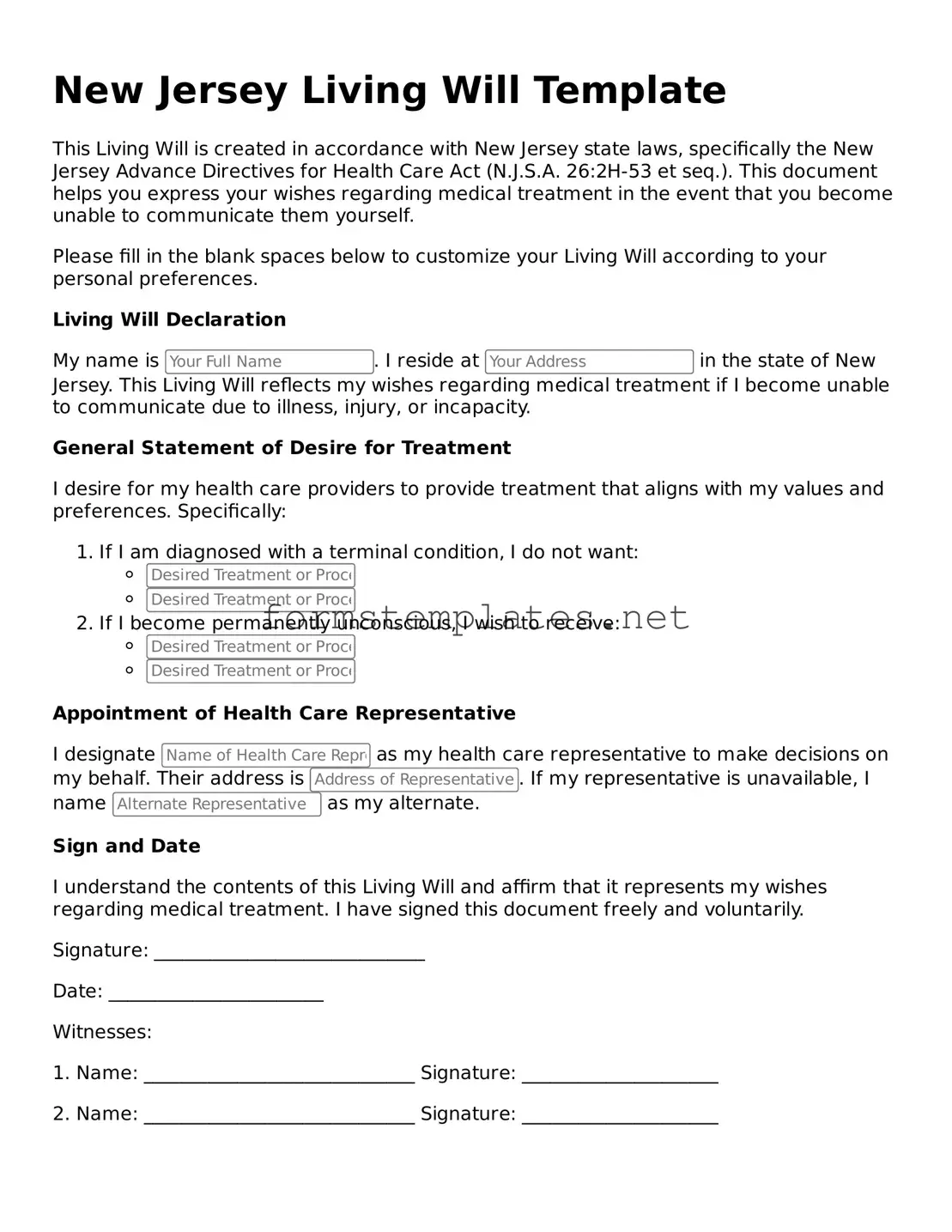Attorney-Approved New Jersey Living Will Template
A New Jersey Living Will form is a legal document that allows individuals to outline their preferences for medical treatment in the event they become unable to communicate their wishes. This form ensures that healthcare providers and loved ones understand a person's desires regarding life-sustaining measures. By completing a Living Will, individuals can take control of their healthcare decisions and provide peace of mind for themselves and their families.
Open Editor Now

Attorney-Approved New Jersey Living Will Template
Open Editor Now

Open Editor Now
or
⇓ PDF Form
Your form still needs attention
Finalize Living Will online — simple edits, saving, and download.